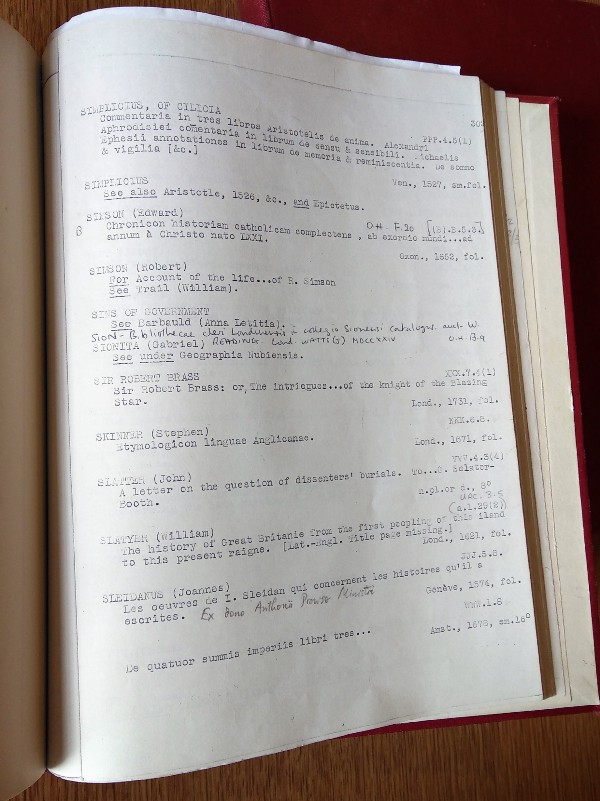
When the current project to catalogue Hertford’s books started in 2018 only a small proportion of the books had been added to the University’s online library catalogue, SOLO. For the past few decades the main source of information about the collection had been an unpublished typewritten list with minimal information and little detail of provenance or physical condition. The few existing records already in the SOLO online catalogue had been added as part of larger Oxford projects, but this current project aims to add detailed records for all books in Hertford’s rare books collection to the online catalogue.
The first books to be catalogued were around 200 volumes that had previously been on loan to Oxford University Press as part of their “Printer’s Library”. These were mainly books printed in England during the 17th and 18th centuries covering a wide range of subjects from sermons to chess playing.
Shelved alongside these was one particularly large and fascinating volume which was given to Hertford by F.D.S. Darwin (matriculated Queen’s, 1883) in 1934. This collection of broadsides contains 43 items, spanning 200 years. They are mostly proclamations, declarations and narratives relating to events from the reign of Charles I to Queen Anne, nearly half of which relate to the English Civil War and Interregnum.
There are also several very rare sheets; for example, the 28th bulletin of Napoleon’s “grande armée” issued in November 1812 when he arrived at Smolensk, relating various successes (and omitting losses), concluding with the sentence: “La santé de l’Empereur n’a jamais été meilleure” [translation: the health of the Emperor has never been better]. The volume also contains the only recorded surviving copy of the “The St. Lucia gazette, or, General intelligencer” printed on St Lucia on October 21, 1780 and gives a variety of information from items for sale to information relating to the American Revolution. Each item within the collection has been individually catalogued in the online catalogue.
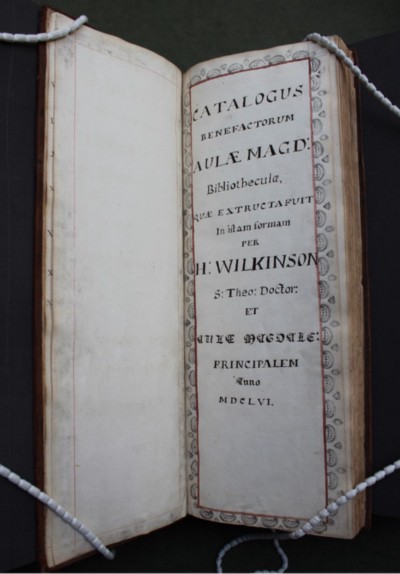
Cataloguing an early printed book involves looking at three areas: the bibliographic text, the materials used to construct the book and the provenance. The resulting record which appears on the library catalogue therefore holds a great deal of information which will enable researchers and academics to locate books and texts which fall into their sphere of interest more easily. With the increase in the numbers of texts which have been digitised, often the scholarly interest will lie in textual differences, manuscript annotations and ownership, all of which will be evident from the catalogue record in a way which was not previously available.
Unpicking the provenance trails of early printed books can shed so much light on the history of a collection, especially where written records may no longer exist. The pattern of ownership in college libraries in Oxford is typically a mix of bequest, donation and purchase, with the emphasis on bequest and donation, and this is particularly so at Hertford. Hertford’s early printed books have a somewhat complicated provenance trail. The collection combines the earlier libraries of Hart Hall and Magdalen Hall, which were the predecessors of the current Hertford College (for more on this see our history of the college). We are lucky to still have the Benefactors Book from Magdalen Hall, which records donations from the 1650s to 1730s and often provides useful information. Books can be matched with entries in the Benefactors Book which has proved invaluable in identifying previous owners and their roles in the college.
As the cataloguing continues, the college’s understanding of the connections alumni and other donors have had to the libraries of Magdalen Hall, Hart Hall and Hertford College over the centuries is growing. This helps us learn about life at the halls and college in the past and answer archival queries about old members and staff too. The new catalogue records are making it easier for researchers from around the world to learn about Hertford’s collections. This detailed information is helpful for researchers unable to visit the collections in person, and those tentatively planning potential trips to Oxford. We also hope that, by making the books easier to discover, this will lead to more enquiries and requests to visit the collection in future.
Resources and links
Oxford’s library catalogue, SOLO

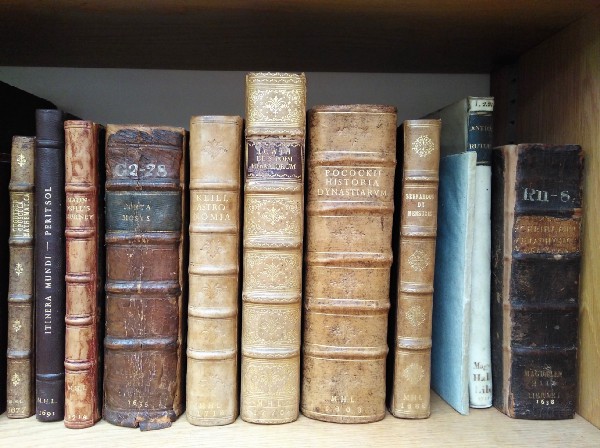
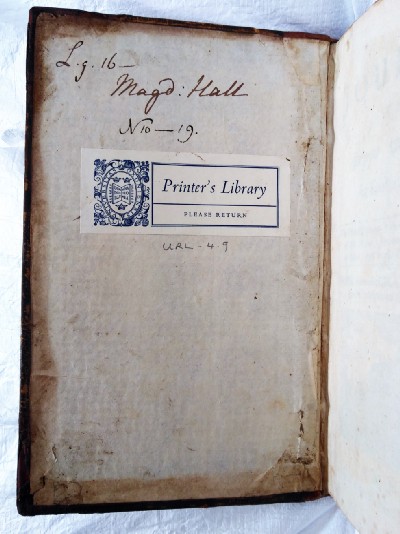

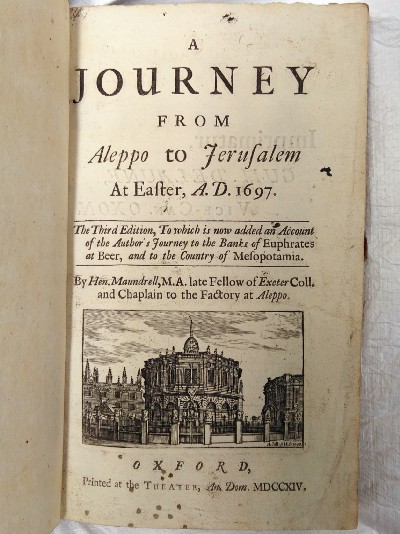
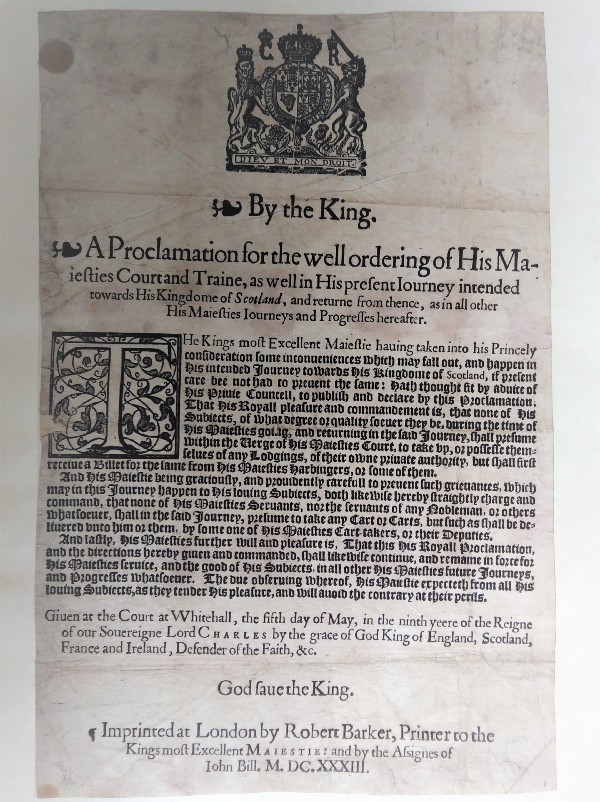
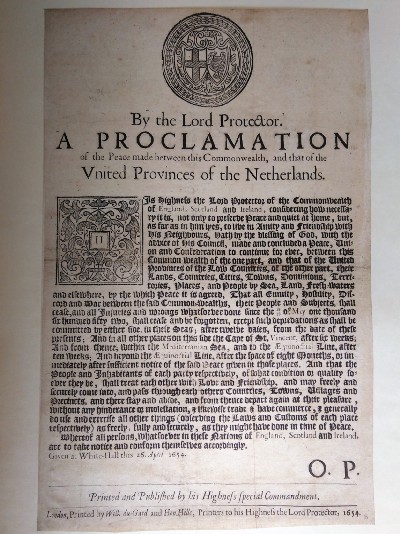
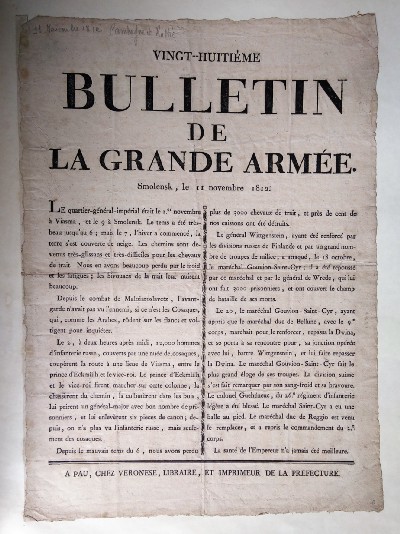
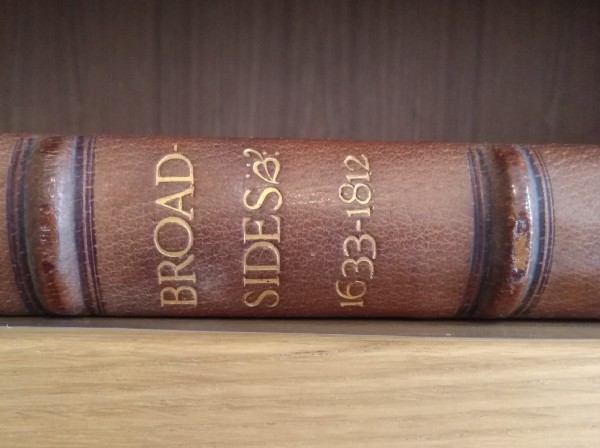
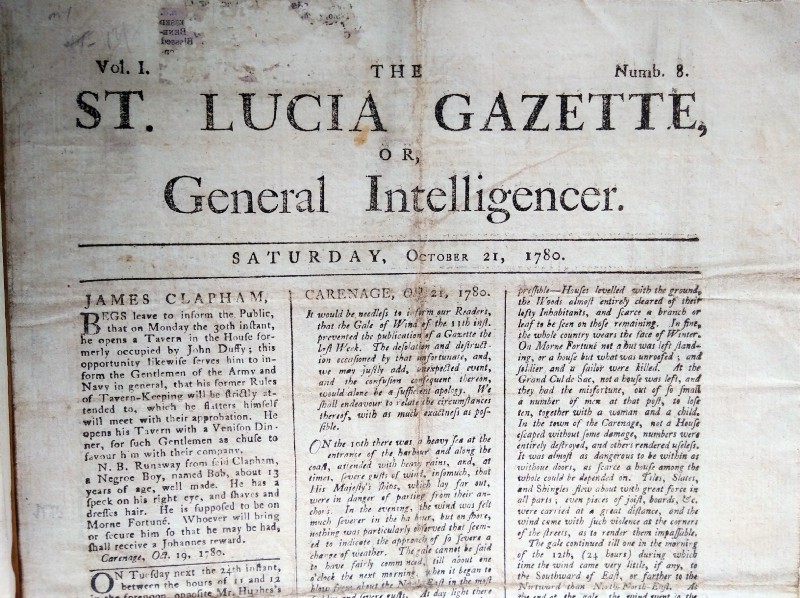
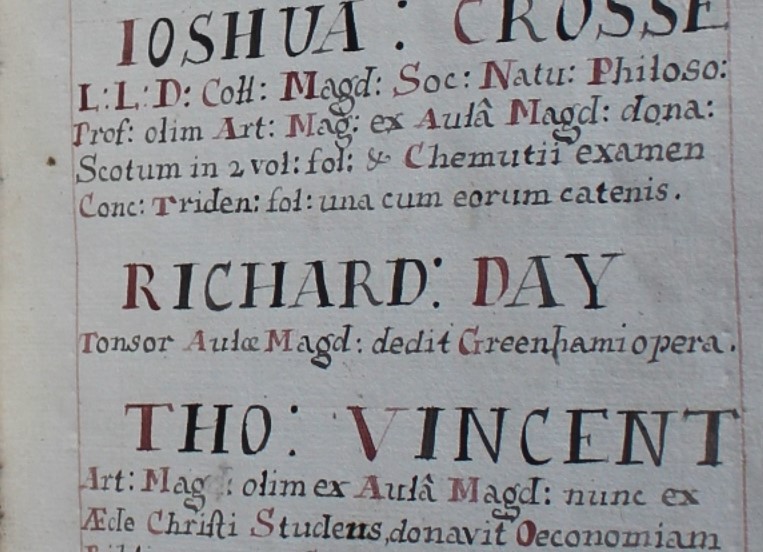
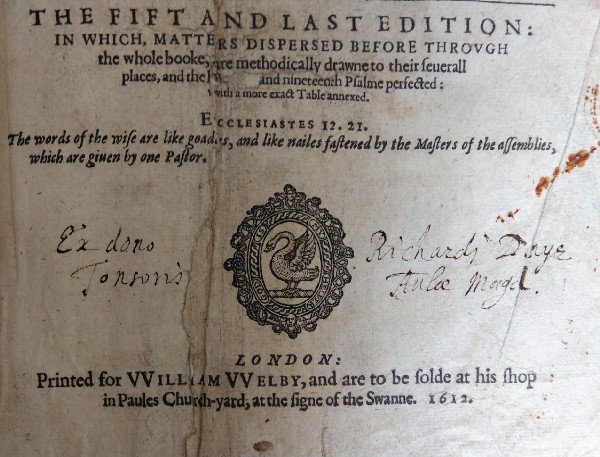
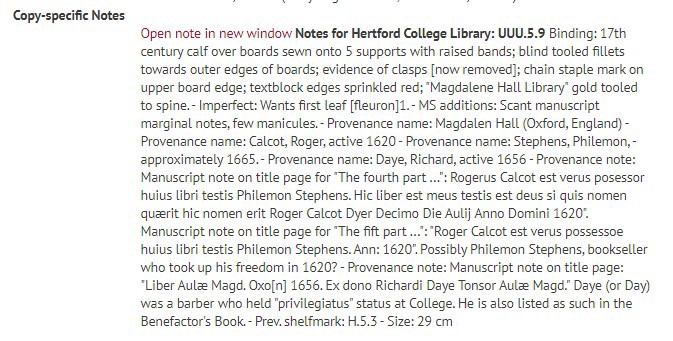
One reply on “Cataloguing at Hertford College Library”
Fascinating and detailed research! A scholarly article.